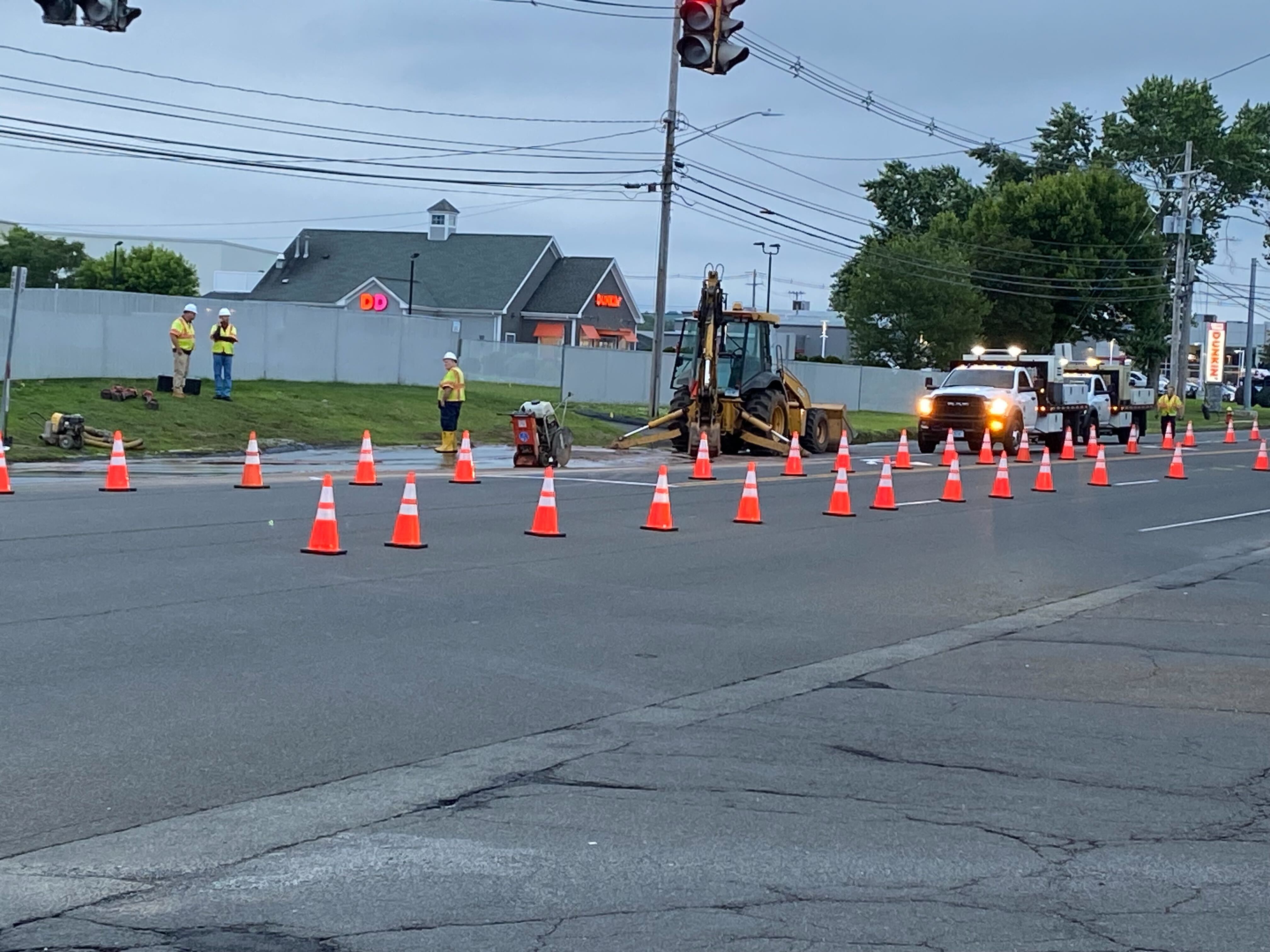The Russian invasion of Ukraine has been underway for 11 months now, and education is one of many things being impacted by the war.
The Russian invasion of Ukraine has been underway for 11 months now, and education is one of many things being impacted by the war.
Save the Children reports that since the start of the academic year in September, one school has been destroyed every other day in Ukraine.
Stream Connecticut News for free, 24/7, wherever you are.
Andrii Kryvoruchko and Kseniia Guliaeva both care about their education, and they both have ties to Ukraine.
Kryvoruchko is Ukrainian and a recent graduate from the University of New Haven, preparing for law school.
Get top local Connecticut stories delivered to you every morning with the News Headlines newsletter.
Guliaeva, a sophomore at Wesleyan University, is a Russian student opposed to the war in Ukraine. She’s a quarter Ukrainian and many of her family members live there.
Both are heartbroken that schools are being shelled in Ukraine every other day.
“It's awful,” Guliaeva said.
Local
“All of that had a really big impact on children,” Kryvoruchko said.
Kryvoruchko has been living in the United States for years, but his younger sister Liliia was just 14 and in Ukraine when the war broke out. Before coming to the U.S., she fled to Poland, where she took classes remotely for about four months.
“She was taking online classes, still with her Ukrainian school, and that poses many, many problems. She had no social interactions,” Kryvoruchko said.
Guliaeva had many cousins living in Kyiv, forced to relocate to other parts of Europe.
“Now they're living in Germany as refugees,” she said. “They’re struggling with language, they're struggling with, like, plunged into this new system.”
She is worried about how it will impact their opportunities for college.
“Some of them are like in their final years of school,” Guliaeva said.
About 1,000 schools have been destroyed in Ukraine, according to Save the Children representative Vsevolod Prokofiev, who is based in Kyiv.
According to Ukraine’s Ministry of Education and Science, 48 schools were destroyed by combat from September to December of 2022. Nearly a quarter of all Ukrainian schools have been destroyed since the war started last February.
That has left 1.2 million children using some form of online classes to support learning.
“We have conducted numerous interviews with children, and they told us on average, they miss out on a day of education when it comes to online classes. And this is solely because of constant electricity cuts, internet cuts,” Prokofiev said.
Save the Children is addressing the dire situation by working to repair physical damage to the schools. The humanitarian organization is also taking steps to help kids keep learning, even if they are doing it online or in a shelter.
“We are establishing a network of these digital learning center,” Prokofiev said. “We also have designed an application that is called library for all. We distribute education kits with pens, pencils or whatever it is. We also train teachers to deliver some sort of psychosocial support for their colleagues and for the children at schools.”
The war is sure to leave lasting implications.
“It should matter that people die, that children die,” Guliaeva said.
The images of rubble, one symbol of the toll on a generation, when it is not safe to do something as simple as go to school.
“It is possible that it could be hidden any minute,” Kryvoruchko said. “Now imagine if you're a parent sending your kids to school, knowing full well that that there's a chance they might not come back home.”



